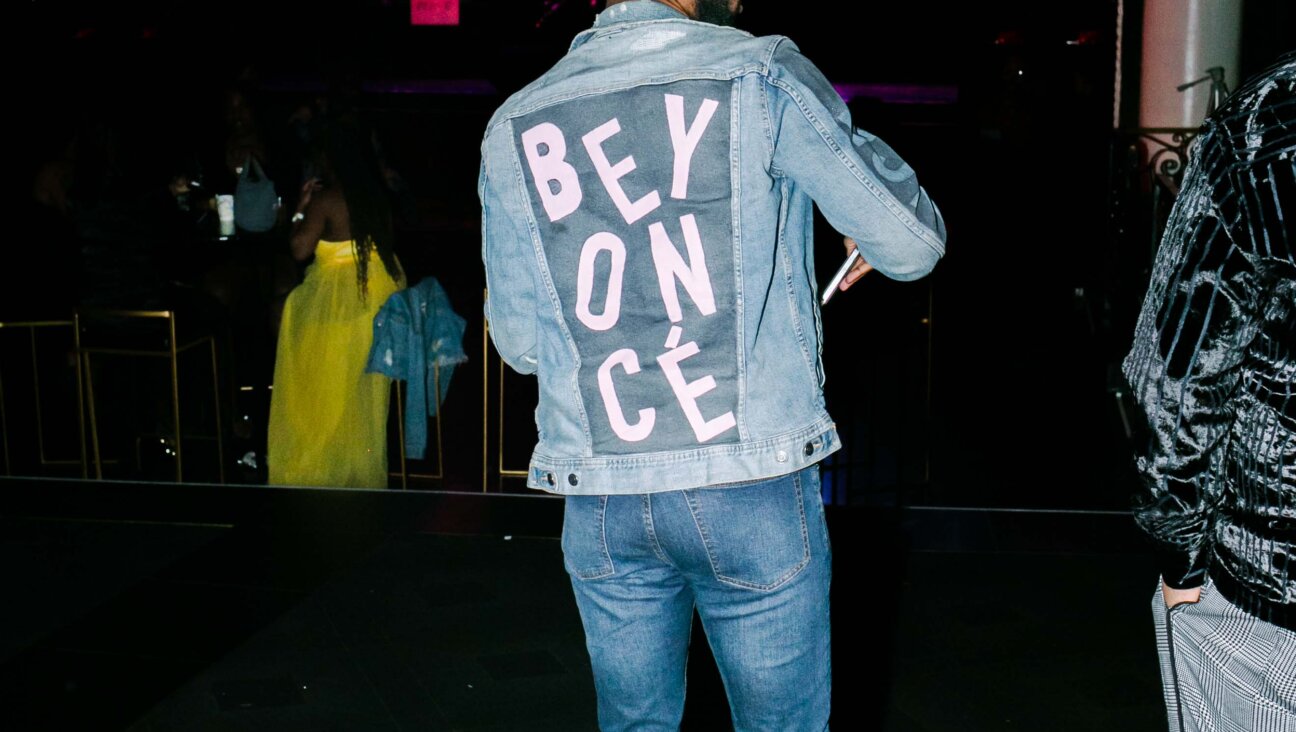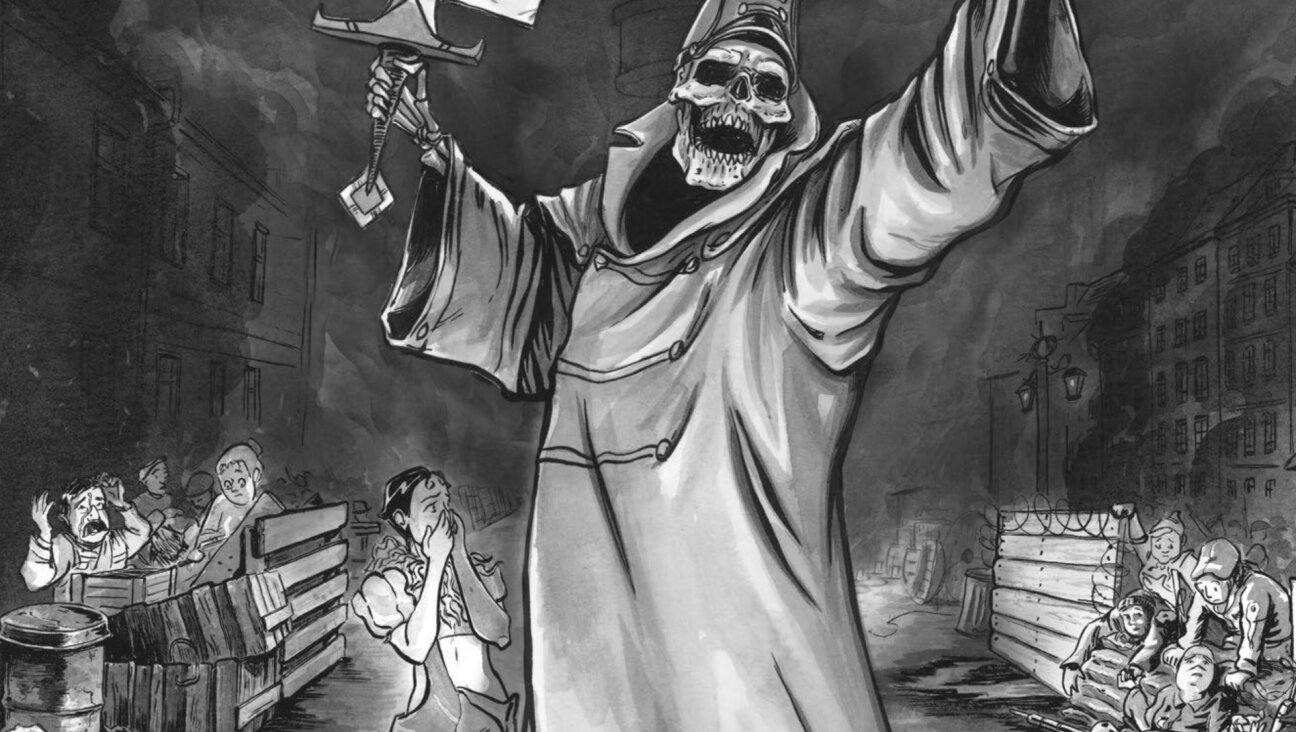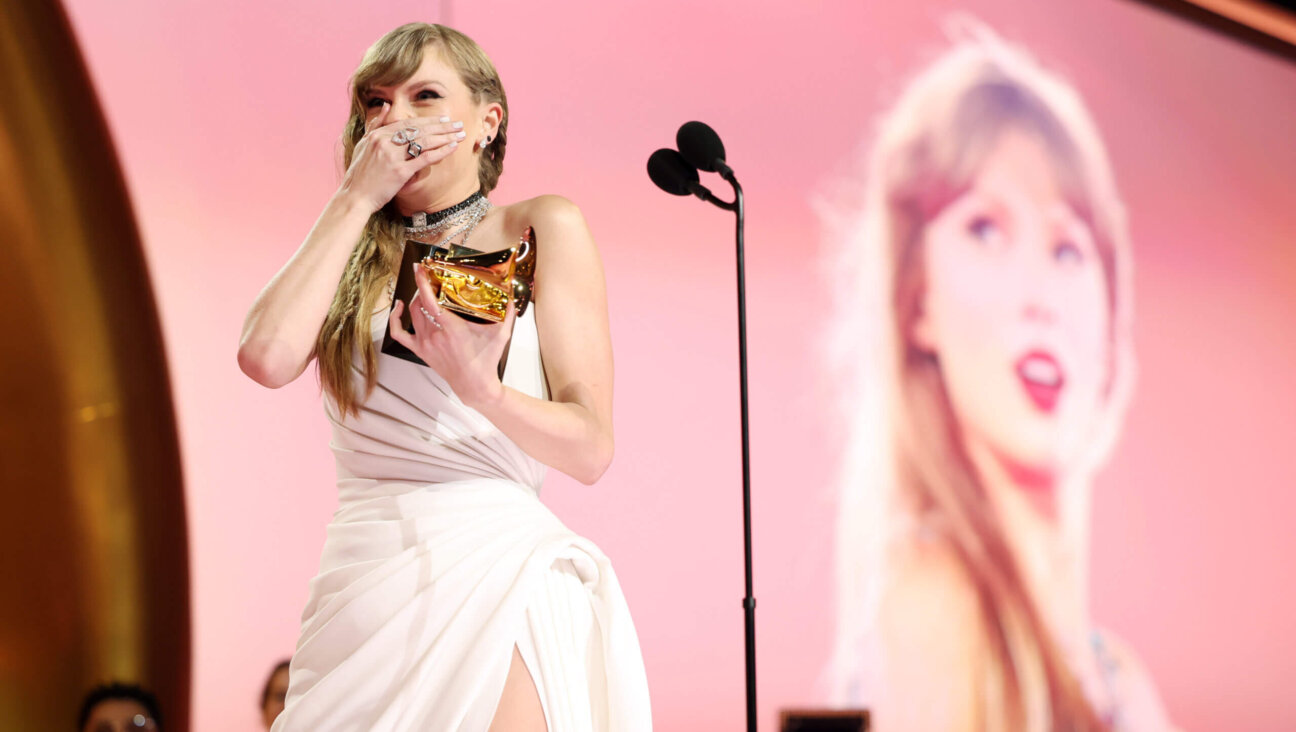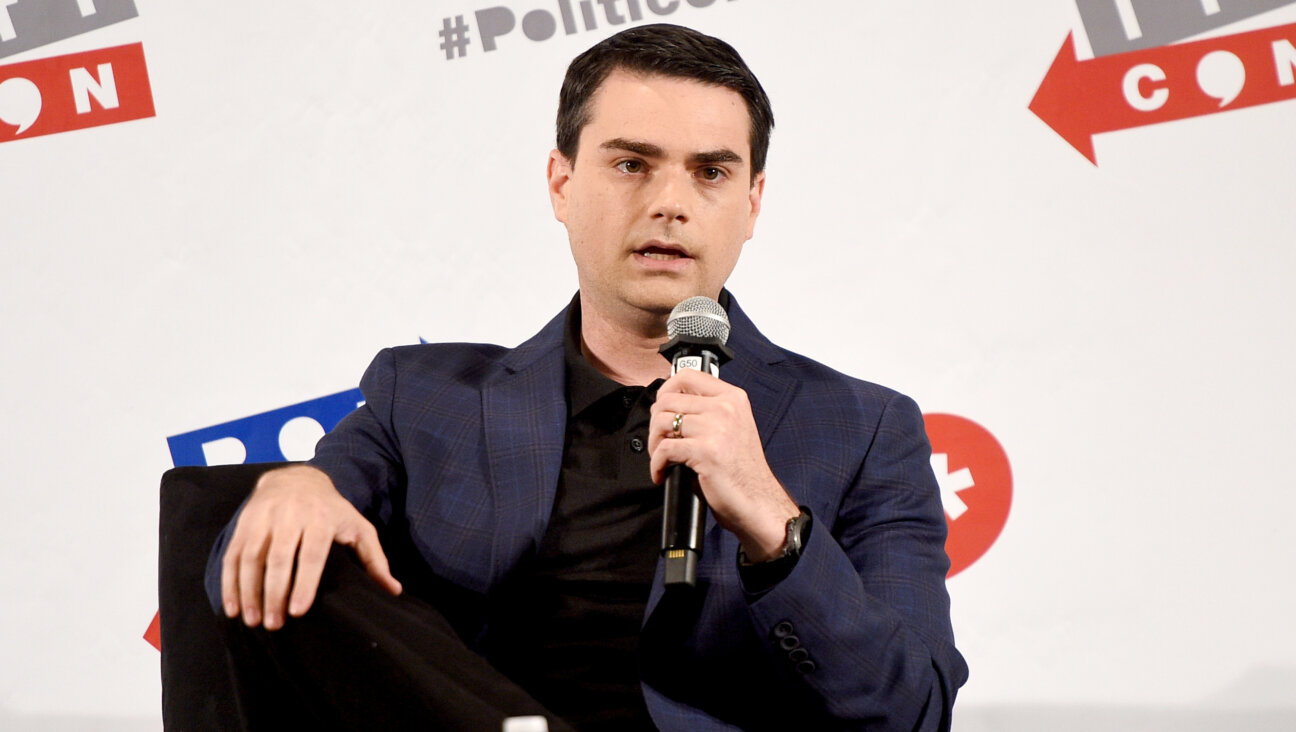100 Years Ago, Violin God Yehudi Menuhin Was Born

Image by Getty Images
April 22 marks the centenary of violinist Yehudi Menuhin (born Yehudi Mnuchin in New York). After 12-year-old Yehudi Menuhin played three concertos in Berlin, Albert Einstein famously exclaimed: “Now I know there is a God.” Menuhin later demurred that Einstein, as an “exalted Romantic man,” might have said the same thing about a worm or leaf to marvel at its natural perfection, and that many talented children play beautifully. Yet the words of Einstein – an ungifted amateur fiddler himself – were taken literally and added cosmic lustre to the Menuhin career.
Menuhin’s earliest recordings have a Scheherazade-like captivating allure of tone and narrative. His pre-war recordings as a young man, especially of works with Jewish themes such as Ravel’s “Kaddisch” and Ernest Bloch’s “Avodah,” express profound tragic emotions, as if prefiguring horrors soon to occur. Yet those who only, or even chiefly, idolize the teenaged Menuhin do his later achievement a disservice. Tully Potter, biographer of Menuhin’s mentor Adolf Busch, noted that Menuhin’s artistry developed as he gradually had life experiences, so many of his recordings in adulthood are also admirably insightful. In celebrating the Menuhin centenary, the key is selectivity and taste, since starting in his twenties, he was prey to a series of problems affecting his ability to play notes steadily, cleanly, and precisely. Many of the resulting performances could sound rough, wiry, and out-of-control. At his best, refinement and depth of musical understanding in recordings of Bach with harpsichordist George Malcolm, or of Handel as a conductor, show Menuhin as an ideal musical colleague.
Unfortunately, in the late 1930s and ‘40s, Menuhin’s exquisite artistic persona became prey to burlesque ridicule in American pop culture. Jerry Colonna, a comic stooge on Bob Hope’s radio show, coined the catchphrase “Who’s Yehudi?” after Menuhin guest-starred one week. The hooting vowel sounds of the name, sounding drolly foreign to the non-Jewish public, even spawned a jive song, “Who’s Yehudi?” It was performed by big band singer Martha Tilton in the 1940 film “Varsity Vanities” (1940), recorded by Cab Calloway, and became the subject of a 1942 soundie in which a stout man in Hasidic garb ogles a curvy singer as she repeatedly inquires “Who’s Yehudi?” In a 2007 article, Jonathan Pollack of the University of Wisconsin-Madison pondered meanings of this lampoon. One result was that when Menuhin appeared in the 1943 screen musical “Stage Door Canteen,” the studio judged it prudent to have him introduced as Mr. Menuhin, lest the mere mention of his first name cause audiences to guffaw, drowning out his performance. This derision may have helped inspire Menuhin’s post-war relocation to England, where he was eventually elevated to the title of baron, as Lord Menuhin of Stoke d’Abernon. The mockery surely thrilled his professional rivals. Compared to the relatively good-natured 1920s George Gershwin spoof song about violinists, “Mischa, Jascha, Toscha, Sascha,” the “Who’s Yehudi?” craze was more like prep school bullying, laughing at a Jew’s funny name. An ongoing dichotomy between crassness and fragility would pursue Menuhin throughout his adult life.
Part of this legacy, according to biographers such as Tony Palmer and Robert Magidoff, was due to his parents, a ferociously controlling stage mother and a father livid with hatred for the state of Israel. As family patriarch, Moshe Menuhin repeatedly compared Jews with Nazis in writings; in a letter to a friend, a typical observation about the Middle East was “Jews should be Jews—not Nazis.” By evoking Nazism to demand political or social action from Jews, the elder Menuhin proved his lack of political acumen and diplomatic skills. His son would repeatedly pursue the same approach.
A 2013 article by musicologist Tina Frühauf describes how in July 1945, Menuhin rushed to give two recitals for Bergen-Belsen concentration camp survivors and other displaced persons. He took this opportunity to make many statements to the press in support of the conductor Wilhelm Furtwängler, about whose activities in pre- and post-war Nazi Germany he was incompletely informed. Even today, historians still debate the complex case of Furtwängler. Menuhin adopted the bull-headed certainty which is helpful when playing such virtuoso fiddle works as Bazzini’s “Dance of the Goblins,” but not in rational discourse. Frühauf notes that Menuhin made the “somewhat naive and untrue statement” that Furtwängler had “never allowed himself to be used as a propaganda vehicle in occupied countries,” amid other misstatements. In 1947, Menuhin returned to Germany to play concertos with the Berlin Philharmonic and Furtwängler, the first international performer to do so, as part of his declared mission to personally redeem German music. Frühauf sees more ambiguity in Menuhin’s motives: “His flaws as a violinist were drowned out by his identity formation as a humanitarian and [citizen of the world]. The Menuhins, for sure, saw in the Berlin performances a great career opportunity; if they first and foremost had the Jewish people in mind remains doubtful. In the end, it appears that the Menuhins never fully grasped the atrocities of the Holocaust and because of that acted insensitively and in their own interest. Yehudi Menuhin’s letter to Washington confirms that in the incredible statement that the persecuted Jews ‘have even reluctantly admitted to me that perhaps it was not quite so great a crime as they had originally supposed or were led to believe.’”
In Germany in 1947, Menuhin also made speeches to displaced persons urging them to love Germans the way he did, proclaiming with echoes of his father’s rhetoric: “To behave toward the Germans the way the Nazis behaved toward us is to admit that we have grown to be like Nazis.” Decades later, Menuhin was still confusing Jews and Nazis when he cabled Leonard Bernstein in 1975. Bernstein had requested Menuhin to join a boycott of cultural activities dealing with UNESCO, which had barred Israel from membership. Menuhin responded, in part: “I CANNOT BEAR TO THINK OF MY FELLOW JEWS RESPONSIBLE FOR THE PERPETUATION AND THE RENEWAL OF THE DISASTROUS HISTORICAL CHAIN OF HOLOCAUSTS.” In 1998 he announced in Paris: “What’s extraordinary is that some things never die completely, even the illness which prevailed yesterday in Nazi Germany and is today progressing in that land [Israel].” By then he had already been awarded 1991’s Wolf Prize in Israel for “achievements in the interest of mankind and friendly relations among people… irrespective of nationality, race, colour, religion, sex or political views.”
On his centenary, Menuhin, who could be so refined in performance and sensitive in appreciating world cultures – devoted to yoga and performing with Ravi Shankar – must also be recalled for intemperately voiced political views. This failure of phrasing and tone, above all unpersuasive, was surprising in a virtuoso with such an accomplished musical ear. What caused such tone-deafness in political discourse? The pressures of a prodigy career and wrenching family dynamics may have been factors. His teacher Georges Enesco recalled how Menuhin confessed to wanting to remain a child, and in some ways perhaps he succeeded. Before and after ludicrous American jive dancers were squealing “Who’s Yehudi?,” the violinist continually asked himself the same question, which will resound in future years as music lovers selectively appreciate his recorded legacy.
Benjamin Ivry is a frequent contributor to the Forward.

I hope you appreciated this article. Before you go, I’d like to ask you to please support the Forward’s award-winning journalism this Passover.
In this age of misinformation, our work is needed like never before. We report on the news that matters most to American Jews, driven by truth, not ideology.
At a time when newsrooms are closing or cutting back, the Forward has removed its paywall. That means for the first time in our 126-year history, Forward journalism is free to everyone, everywhere. With an ongoing war, rising antisemitism, and a flood of disinformation that may affect the upcoming election, we believe that free and open access to Jewish journalism is imperative.
Readers like you make it all possible. Right now, we’re in the middle of our Passover Pledge Drive and we need 500 people to step up and make a gift to sustain our trustworthy, independent journalism.
Make a gift of any size and become a Forward member today. You’ll support our mission to tell the American Jewish story fully and fairly.
— Rachel Fishman Feddersen, Publisher and CEO
Join our mission to tell the Jewish story fully and fairly.
Our Goal: 500 gifts during our Passover Pledge Drive!

























